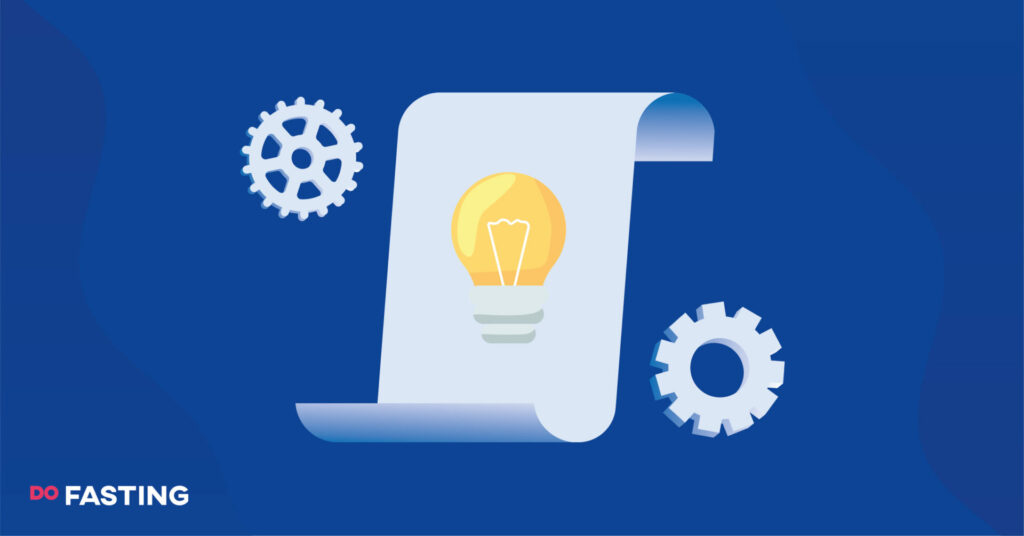Contents
What Is ADHD, and What Are the Symptoms?
ADHD, or Attention Deficit Hyperactivity Disorder, is a medical condition that affects a person’s day-to-day behavior. ADHD brains contain low amounts of norepinephrine, which is a neurotransmitter. Dopamine and norepinephrine function together.
ADHD brain activity is disrupted in four functional areas of the brain:
- Frontal Cortex – a part of the brain that plays a role in memory, attention, and judgment.
- Limbic System – a part of the brain involved in our behavioral and emotional responses.
- Basal Ganglia – part of the brain involved in the control of voluntary motor movements, procedural learning, habit learning, conditional learning, eye movements, cognition, and emotion.
- Reticular Activating System – a part of the brain that’s responsible for attention, arousal, modulation of muscle tone, and the ability to focus.
Here are the symptoms of Attention Deficit Hyperactivity Disorder:
- Difficulty concentrating and focusing – can include having a short attention span, making careless mistakes, having difficulty organizing, appearing forgetful, and being unable to stick to tasks.
- Hyperactivity and impulsivity – can include being unable to sit still, constantly fidgeting, excessively talking or moving around, acting without thinking, and feeling little to no sense of danger.
There can be a few reasons why children develop ADHD in the first place.
Take a
1-minute quiz
and discover how much weight you can lose with DoFasting!

What Are the Causes of ADHD?
Scientists are still attempting to pinpoint the specific cause of ADHD. However, until now, they have only discovered genetic evidence. This means that ADHD tends to run in families.
Aside from that, they are looking into a few other factors that may contribute to ADHD:
- Premature delivery
- Low birth weight
- Brain injury
- Exposure to environmental risks
- Alcohol and tobacco use during pregnancy
Some people believe that consuming too much glucose, watching too much television, parenting, or societal and environmental issues such as poverty or family dysfunction might cause ADHD. However, there is insufficient data to support these theories.
Even though you might not be 100% sure what caused ADHD, there are some particular areas that intermittent fasting might be helpful with.
Can Intermittent Fasting Improve Your Cognitive Function?
ADHD is associated with lower cognitive function. However, a direct effect of intermittent fasting on cognition has not been found. The research that has been done on this topic shows that so far no change has been seen in cognition after intermittent fasting.
Other studies suggest that intermittent fasting can be linked to a depressed mood and difficulties in concentration.
Nonetheless, intermittent fasting can have a positive effect on:
- Memory – food restriction can improve your capacity to create new brain cells, which may improve some parts of memory.
- Clarity – because your body cleanses itself of toxins, your brain has access to a cleaner bloodstream, which might result in clearer thoughts and greater sharpness of your other senses.
- Creativity – during an intermittent fasting period, our brains become more alert and become sharper which can increase creativity as well.
Even though intermittent fasting is shown to not have any positive effects on cognition, it can improve memory, clarity of thought, and creativity which can still help to cope with ADHD symptoms.
But without changes in the brain, there are other ways that fasting might help you.
Other Benefits of Fasting That Can Help You Cope With ADHD
Intermittent fasting can surprise you with a wide range of health benefits, including those that can help you cope with ADHD.
You will be able to control your weight more easily
Having ADHD can lead to weight gain. This is because it can be hard to control your impulses which can lead to constantly overeating. Moreover, ADHD medication can also have side effects that include weight gain.
Luckily, intermittent fasting is closely linked to weight loss. To specify, there are several fasting plans you can choose from. Some of the popular ones include 16:8, alternate-day fasting, and so on.
When you fast, your insulin levels decrease and facilitate fat burning. Moreover, norepinephrine is sent to your fat cells by your nervous system, causing them to break down body fat into free fatty acids that may be burnt for energy.
In addition to that, it helps you reduce your calorie intake, which can be hard do to without fasting when dealing with ADHD. Besides, intermittent fasting has been proven to help control your weight.
To make it even easier, you can download the DoFasting app which is personalized to every user and includes an advanced fasting tracker that helps you to stick with your fasting plan at all times.
It’s also worth noting that there is no need to count calories during your eating window, which may reduce additional stress as opposed to following a strict diet.
Take a
1-minute quiz
and discover how much weight you can lose with DoFasting!

You will experience changes in hormones, cells, and genes
As I’ve mentioned above, intermittent fasting affects insulin levels. They drop and promote fat burning. Fasting can also improve longevity by altering various genes and molecules.
Apart from this, when fasting, blood levels of human growth hormone skyrocket. As a result, higher amounts of this hormone promote fat loss and muscle building, among other benefits such as cell repair, and healthy metabolism.
Moreover, intermittent fasting stimulates cell repair processes and eliminates unwanted material from cells. These effects can help with ADHD symptoms that revolve around changes in hormones.
You will stimulate autophagy
Intermittent fasting boosts autophagy which has a potential therapeutic effect for a diverse range of diseases. Autophagy is induced by stressing your cells to send them into survival mode.
During autophagy, the body cleanses damaged cells and regenerates newer ones. Also, intermittent fasting is the most effective technique to activate autophagy.
Autophagy eliminates harmful proteins from cells that are linked to neurological disorders including Parkinson’s and Alzheimer’s disease, and it may also help with ADHD symptoms.
You may improve your overall health
Intermittent fasting can aid in the prevention of a variety of diseases. This is because fasting cleanses your body of toxins and drives cells into processes that are not normally promoted when there is a constant supply of fuel from meals.
Moreover, when you fast your body goes through ketosis which burns the stored fat in your body and helps regulate blood sugar levels.
Intermittent fasting also fights inflammation which is involved in the development of cancer, heart disease, and other conditions. Therefore, it can prolong your life.
This means that you can take care of your overall well-being without thinking too much about it. This is a great benefit since people with ADHD tend to struggle to take care of their health because of a lack of attentiveness, memory, and impulse control. Others refer to this state as “brain fog”.
ADHD Medication Alternatives
ADHD medications can have some adverse effects, so it’s important to be aware of different natural remedies you might use in your daily life that will help you cope with ADHD.
Healthy diet
Even though more research is needed on ADHD and a healthy diet, some experts say that well-balanced nutrition can help ease the symptoms. A bad diet, on the other hand, can make the symptoms worse.
Foods and nutrients can be good for brain health, and therefore, be beneficial for ADHD.
A healthy diet can also be referred to as “eating the rainbow”. This means that you should eat vegetables, fruits, whole grains, and protein foods such as seafood, lean meats, poultry, eggs, soy products, nuts, and seeds.
Moreover, you should avoid highly-processed foods and snacks that contain a lot of sugar or salt.
It’s especially important when intermittent fasting. To enhance the results you should also think about your diet during your eating window. Therefore, try to eat slowly, in small amounts, and include nutritious and healthy meals.
The DoFasting app, which focuses solely on intermittent fasting, has over 5000 nutritious, easy-to-make meals, ensuring that you never run out of ideas. Moreover, you may use the app to monitor and log your calories and keep track of your overall food consumption.
Exercise at least 60 minutes per day
Physical activity can help improve attention and provide greater impulse control. Moreover, exercising can help with stress, anxiety, and compulsive behavior and improve memory. Therefore, exercising at least 60 minutes a day can help with ADHD symptoms, and increase your brainpower and energy levels.
Exercising during intermittent fasting might be difficult. Hence, it’s important that you stay hydrated, keep your electrolytes at a high level, and do low-intensity workouts.
You may also use the DoFasting app to make the most of your intermittent fasting journey. The app has a separate “workouts” tab that provides you with a variety of home workouts ranging from beginner to intermediate levels. You can also select a certain intensity or a specific body part you want to target.
Get enough sleep
National Sleep Foundation guidelines show that healthy adults need 7 to 9 hours of sleep every night. Sleeping less than you need might aggravate your ADHD symptoms, and it can be difficult to return to a healthy sleep cycle after a time.
Poor sleep habits can cause irritability and stress, while healthy sleep can enhance your well-being. Getting enough sleep can help regulate your moods and help cope with ADHD.
Intermittent fasting, on the other hand, can increase the quality of your sleep by maintaining your circadian rhythms. To get better sleep during intermittent fasting, if possible according to your fasting plan, don’t go to bed completely starving.
Drinking enough water can help reduce hunger, so make sure to stay hydrated. Moreover, avoid napping and drinking caffeinated beverages before going to bed. Also, try to go to bed at the same time every night.
Limit daily screen time
Excessive screen time can interrupt sleep, impair psychological well-being, and decrease cognitive functioning. As mentioned above, sleep loss can worsen ADHD symptoms.
Moreover, screen time might make it more difficult to concentrate or complete everyday tasks. This is because the screen of your device produces blue light. During daylight hours, blue light can be beneficial because it boosts attention, reaction times, and mood.
However, blue light might reduce melatonin release at night, affecting your sleep.
Melatonin is a hormone that regulates your circadian cycles and sleep.
Limit your daily screen time to avoid having your computer or phone impact your psychological health or sleep cycles. Especially a few hours before going to bed.
Use a daily journal, or tracking apps
ADHD is a chronic disorder that impacts most parts of life including regular daily functioning, relationships, as well as professional and academic fields. It can be difficult to make sense of what triggers the impact on your mood and emotions.
One of the solutions for this is to start a journaling practice. This gives you not only an outlet to express your emotions but the ability to identify what potentially causes you to feel better or worse.
Recent systematic review has shown that there are a few health tracking apps that could be used as an alternative to journaling. Based on this systematic review, Effecto app could be one of the options to track well-being for a person suffering from ADHD. The benefit of tracking apps is that they are much less time-consuming, and can provide useful insights, that are easy to miss when using a journal.
Take a
1-minute quiz
and discover how much weight you can lose with DoFasting!

Fasting for ADHD: Key Takeaways
Intermittent fasting can help manage Attention Deficit Hyperactivity Disorder or ADHD symptoms in a way that you will be able to control your weight, stimulate autophagy, and improve your overall health.
However, make sure to consult a medical professional before attempting to try out fasting for ADHD.
See how DoFasting will improve your life
Find out what works for you with this 60-sec quiz approved by our experts and get your personal revolutionary fasting assistant.
Start the Quiz















